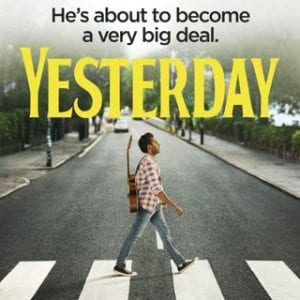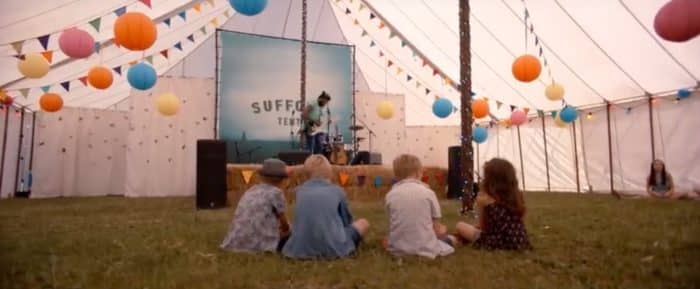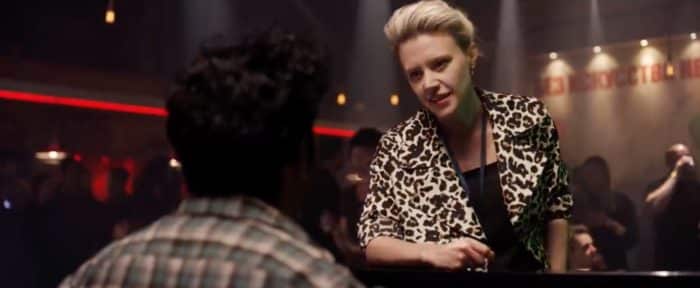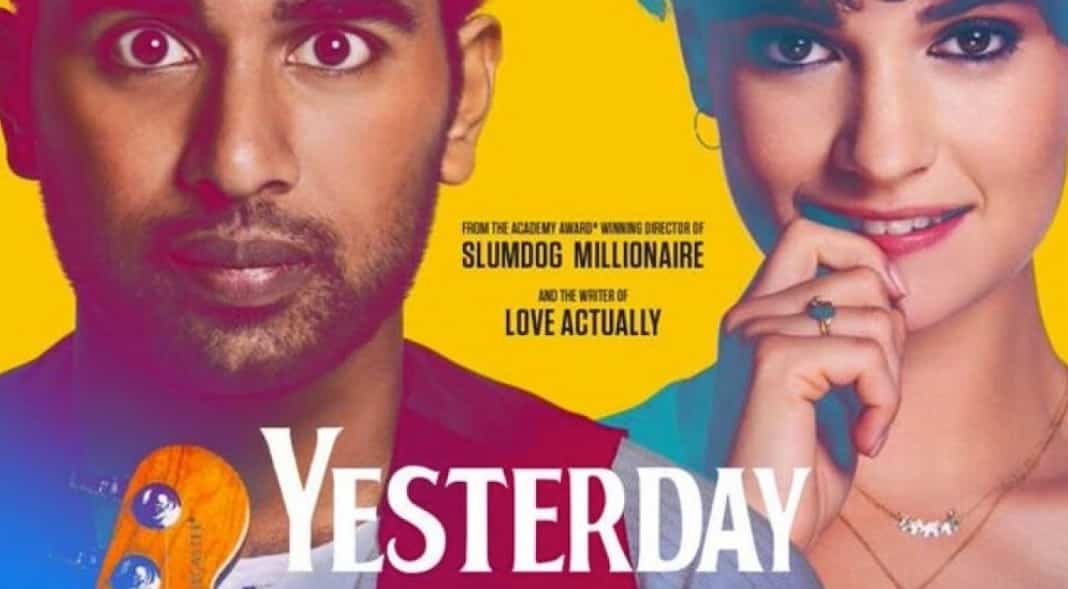Plagiarism in Pop Culture: Yesterday
My troubles seemed so far away...

When writers turn to plagiarism as a plot device for their stories, they usually do so with a fairly straightforward angle. Plagiarism is bad and it’s something to either be avenged, hidden, learned from or stopped.
Whether it’s a motivation for a murder, the downfall of a journalist or a family shame, plagiarism, when used as a plot device, is a bad thing that’s presented in largely black-and-white terms.
What’s often missing is a more nuanced discussion about what constitutes plagiarism and whether it’s always a bad or unethical thing.
The 2019 film Yesterday, however, tries to break that. By creating a very unique hypothetical situation, it asks an odd question: Is it wrong to plagiarize a work that no one else remembers exists, if it can be said to have existed at all?
It’s a truly bizarre question but it’s one that needles at the very heart of what is and is not plagiarism. It’s also the exact situation that the film’s protagonist, Jack Malik, finds himself in as he wakes up to find that he’s the only person that remembers the Beatles.
While this happy accident turns his struggling music career around, it also creates moral quandary that he must wrestle with for the entirety of the film and one we get to wrestle with for a long time after the movie is done.
Content Warning: Spoilers for Yesterday (Note: Since the film is still in theaters, I will work to limit the spoilers to what is necessary for the discussion.)
The Plot

The film opens with Jack Malik, a struggling musician from a small town in the UK as he tries to get his music career going by playing at pubs and small tents at music festivals. Frustrated, he tells his friend and manager, Ellie Appleton, that he’s giving up on music as it just isn’t working out for him. She does her best to convince him not to quit.
However, as he’s cycling home, a freak blackout strikes the entire globe, cutting all electricity for approximately 12 seconds. During the blackout, Jack is hit by a bus and is sent into a coma.
When he wakes up, his friends gift him a guitar to replace the one destroyed in the accident. He chooses to play the Beatles song Yesterday as the first song for the guitar but his friends are awestruck by how beautiful the song is and claim to have never heard of it before.

Jack initially thinks that this is some cruel joke but comes to realize that he is the only person that remembers the Beatles and that he is now living in a timeline where the band never formed.
At this point, Jack ditches his music and instead starts “writing” and performing Beatles songs. After recording a demo in a local music studio, his career begins to pick up as Ed Sheeran takes him on as an opening act. From there he is introduced to Sheeran’s agent, Debra, who signs him to a major record label.

But even his career begins to take off, Jack is constantly riddled with insecurities about his work. First, his knowledge about the Beatles is hardly encyclopedic as he is struggling to remember many of their songs and the words to them. Second, he has nightmares and fears about being “found out” as a plagiarist.
Still, none of this derails Jack’s meteoric rise. After a trip to Liverpool to see some of the iconic Beatles locations (which are far less iconic in this universe), Jack is able to complete the album and we get to see how the record industry attempted to repackage and present the Beatles music in 2019.

Jack learns that there are others in the world that remember the Beatles but, after a face-to-face confrontation with two of them, he learns that they aren’t mad about the plagiarism, just happy that the music is back out into the world.
In the end, Jack decides that the guilt is too much and that a life of stardom isn’t for him. He confesses to his plagiarism (if it can be called that) and releases all of the songs for free, killing the planned album release.
Understanding the Plagiarism

The plagiarism in this film exists almost solely in Jack’s mind. To him, he’s a plagiarist taking credit for the work of the Beatles. However, to the rest of the world, the Beatles never existed so the work is completely original.
This is pretty much the opposite of how many real-world plagiarism cases unfold. With many plagiarists there is a sense of self-delusion, a belief that the work IS theirs even when it clearly isn’t. Even when called out convincingly for plagiarism, many stand resolute behind their “work” and refuse to accept that they plagiarized.
Jack never has any delusions about being a great musician or songwriter. He’s always acutely aware that the songs aren’t his and actively wrestles with the accolades he earns because of that. Unlike a regular plagiarist that believes themselves worthy when they are not, Jack thinks himself unworthy when it can easily be argued that he is.
But that raises an interesting question: Is what Jack did plagiarism?
If we use the Merriam-Webster definition, “To steal and pass off (the ideas or words of another) as one’s own : use (another’s production) without crediting the source,” it definitely is. Jack certainly did take someone else’s work and present it as his own, case closed.
However, I would argue that this simplified view goes against the spirit of plagiarism. The band Jack stole from exists solely in his head. The songs literally came from his mind, the only difference is that it came from a memory and not a creative process. But, in a world where the Beatles don’t exist and that memory is a false one, is it really a memory or is it an an act of imagination?
In the end, it may be a moot question. Whether or not Jack’s actions amount to plagiarism is a less important question than whether they were unethical. To that end, Jack appears to be the only one that feels it is.
Toward the end of the film, Jack is confronted by two other people who were unconscious at the time of the blackout and, as a result, share his memories. However, what seemed like setting the stage for an angry exchange turned into a joyous reunion as they were simply happy to be able to hear the songs they loved again.
Instead of a shouting match or angry accusations, the three spent time enjoying their shared memories that no one else had. As Jack put it, he felt like he had been traveling in a foreign country and finally met people who could speak English.
But this raises an interesting question: Is it worse to plagiarize the Beatles or for their music to not exist?
After all, that was the choice forced upon Jack (even if he didn’t see it that way). When he tried to give credit for the songs, no one believed him. When he took credit for them, they became mega hits. There was no way to both attribute the work (to a band that didn’t exist) and have the music in the public consciousness.
When it’s all said and done, the weakest part of the movie from a plagiarism standpoint was the ending. Jack spends much of the movie insisting the Beatles wrote the songs and only gives up when he learns the full truth. Why would the audience at Wembley Stadium suddenly accept that four strangers wrote this music when they clearly didn’t?
Jack’s confession doesn’t resolve the reasons no one believed the Beatles wrote the music and it doesn’t really address the deeper plagiarism questions in the movie. Instead, it was more of a tool to wrap up other plot points that i deliberately skipped in my synopsis.
Still, the movie does leave us with some really interesting hypotheticals and a lot to discuss (perhaps at an academic integrity conference). If you haven’t seen it and are interested in the philosophical issues that surround plagiarism, it’s definitely worth checking out.
Bottom Line
In the end, this movies hypotheticals are just that, hypotheticals. Getting to a place where a man plagiarized a well-loved band that only he remembered required one hell of a macguffin that went unexplained for the whole movie. In the real world, it’s pretty much impossible to plagiarize something that doesn’t actually exist.
Still, the story does edge up against other, more realistic topics such as cryptomnesia, which is when one falsely remembers an idea as being original. In fact, Jack’s story could be looked at as a reverse cryptomnesia if we assume he was having a (shared) delusion about the Beatles existing.
But while the movie is a great thought exercise and a really good dive into the philosophy of plagiarism, it doesn’t have much practical application. Barring some of us slipping into an alternate timeline, we’re not likely to be confronted with these questions in the real world.
Still, it’s nice to play with those questions and to also see a film that explores the issues of plagiarism more complexly. It’s definitely the most unique entrant in the Plagiarism in Pop Culture series.
More Plagiarism in Pop Culture (In Reverse Order)
Want more Plagiarism in Pop Culture? There Are 40 others to check out!
- Ferris Bueller
- Randy Feltface
- Bob’s Burgers
- Columbo (Part 2)
- Columbo (Part 1)
- Death in Paradise (Part 2)
- American Auto
- Saturday Night Live
- The Conners
- Death in Paradise (Part 1)
- Lobachevsky
- Back to School
- The Golden Girls
- Young Sheldon
- The Goldbergs (Part 2)
- King of the Hill (Part 2)
- Yesterday
- King of the Hill (Part 1)
- The Kids Are Alright
- Big Fat Liar
- Coco
- Re-Animator
- Elementary
- Instinct
- Fresh Off the Boat
- The Goldbergs (Part 1)
- Lou Grant
- Star Trek: The Original Series
- Arthur
- Criminal Minds
- Mystery Science Theater 3000
- Cheers
- WKRP in Cincinnati
- Boy Meets World
- Law & Order: Criminal Intent (Part 2)
- Law & Order: Criminal Intent (Part 1)
- Jane the Virgin
- The Waltons
- Leave it to Beaver
- The Facts of Life
Want to Reuse or Republish this Content?
If you want to feature this article in your site, classroom or elsewhere, just let us know! We usually grant permission within 24 hours.
